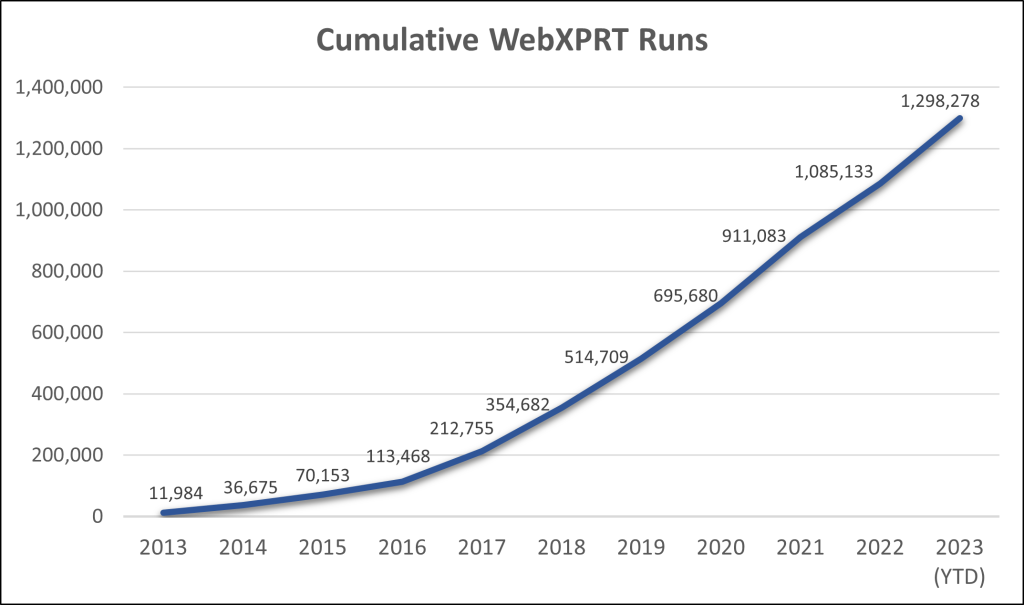Each month, we send out a BenchmarkXPRT Development Community newsletter that contains the latest updates from the XPRT world and provides a summary of the previous month’s XPRT-related activity, including mentions of the XPRTs in the tech press. More people read the weekly XPRT blog than receive the monthly newsletter, so we realized that some blog readers may be unaware of the wide variety of tech outlets that regularly use or mention the XPRTs.
For today’s blog, we want to give readers a sampling of the XPRT press mentions we see on a weekly basis. Recent mentions include:
- Notebookcheck used WebXPRT in reviews of the Acer Aspire Vero 15, the Apple iPhone 15 Plus, the Apple MacBook Pro 14 (M3 Max, 2023), the Apple MacBook Pro 16 (M3 Max, 2023), the ASUS ZenBook Pro 16X, the Google Pixel 8, the Lenovo Tab M10 5G, and the Samsung Galaxy Tab S9 FE Plus.
- Expert Reviews used WebXPRT in a review of the ASUS Chromebook Plus CX34.
- Gizmodo used WebXPRT in a review of the Samsung Galaxy S23 FE.
- PCWorld used CrXPRT in an article titled, “Best laptops 2023: Premium laptops, budget laptops, 2-in-1s, and more.”
- ComputerBase (Germany) used WebXPRT in a review of the Apple Mac Studio (M2 Ultra, 2023).
- TechPowerUp used WebXPRT in a review of the Intel Core i7-14700K processor.
- Other outlets that have published articles, ads, or reviews mentioning the XPRTs in the last few months include: 3DNews.ru, AnandTech, Android Authority, BOTech News (Mexico), eTeknix, Enos Tech, Gadgets360, Hardware.info, ITC.ua (Ukraine), Mac Life, PCMag, QQ.com (China), Tech4Gamers, Tech Radar, Tom’s Hardware, and Tweakers.
If you don’t currently receive the monthly BenchmarkXPRT newsletter, but would like to join the mailing list, please let us know! There is no cost to join, and we will not publish or sell any of the contact information you provide. We will send only the monthly newsletter and occasional benchmark-related announcements, such as patch notifications or news of upcoming benchmark releases.
Justin














